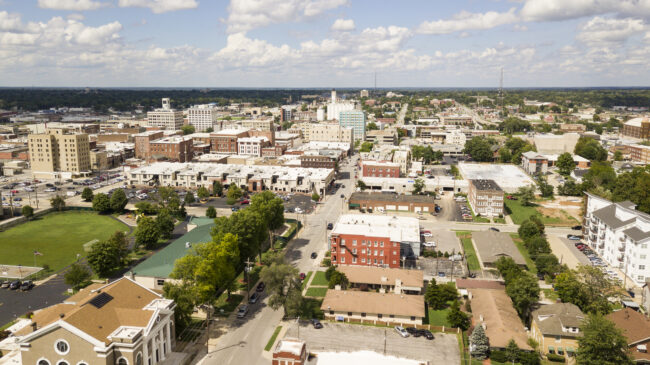Appeal Nos. 23-1374 & 23-1880 United States Court Of Appeals for the Eighth Circuit
Brooke Henderson, et al., Plaintiffs-Appellants,
v.
School District of Springfield R-12, et al., Defendants-Appellees.
On Appeal from the United States District Court for the Western District of Missouri—Southern Division
The Honorable District Judge Douglas Harpool
Case No. 6:21-cv-03219-mdh
Amicus Brief of Americans for Prosperity Foundation, Alliance Defending Freedom, Foundation for Individual Rights and Expression, Defense of Freedom Institute for Policy Studies, Reason Foundation, and The American Civil Liberties Union of Missouri In Support Of Plaintiffs-Appellants and Reversal
Amici regularly advocate on behalf of civil rights plaintiffs and their interests. Their clients generally do not have deep pockets but bring cases of constitutional merit, sometimes presenting cutting-edge legal theories and occasionally recovering fees under section 1988. They are just the type of plaintiffs Congress sought to support in implementing Sections 1983 and 1988. But, if, as here, these clients risk bearing the legal fees of government defendants, they would hesitate to file suit, chilling the protection of their own civil rights and the development of the law.
Uncritically awarding government officials hundreds of thousands of dollars defeats the purpose of our fundamental civil rights statutes, prevents the vindication of vital constitutional protections, and stagnates the law. Congress enacted section 1983 to provide a forum in which those injured by state action can vindicate their rights because, by violating constitutional rights, state officials had abdicated their role to enforce and uphold the law. To fulfill the promise of section 1983, Congress amended section 1988 to allow prevailing parties to recover attorney’s fees. Congress recognized that civil rights litigation both provides remedies for injured citizens and vindicates our constitutional guarantees—benefitting the whole country. To enable those injured to obtain the competent representation necessary for such a suit, Congress provided for fee-shifting.
State officials can recover their fees in only the most extreme cases. To avoid discouraging those injured from vindicating their fundamental rights, Congress and the courts have required a determination that a plaintiff’s suit is “frivolous.” Any higher standard would threaten plaintiffs—who often do not have many resources—with large monetary liabilities and discourage them from filing suit to vindicate exactly those rights Congress wanted vindicated. That, in turn, would stagnate the law. Attorney’s fees awards for state officials chill both citizens and attorneys from bringing novel claims for fear of those arguments being deemed frivolous. But some of our most fundamental guarantees—such as the prohibition on religious discrimination in the award of public benefits and protection for criticism of law enforcement—have been vindicated only by challenging longstanding laws seemingly backed by history and precedent.
Plaintiffs here demonstrated more than enough to overcome the low frivolous barrier, providing evidence that Defendants both censored and compelled their speech. The district court found that “political disagreement” motivated Plaintiffs’ lawsuit, so it did not properly conduct the analysis required by the First Amendment and instead relied entirely on the political questions doctrine. But speech on political issues deserves more protection, not less. And Congress opened federal courts precisely to protect our most fundamental guarantees—like the utmost protection given political speech, even with novel claims or issues of first impression. What’s more, in awarding attorney’s fees, the district court did not do the required lodestar analysis. It awarded Defendants their full amount of claimed fees for their full amount of claimed hours—over $300,000 for over 1,500 hours—despite allowing the case to proceed to summary judgment and without analyzing the reasonableness of the request.
With section 1983, Congress threw open the doors of federal courts to vindicate constitutional and civil rights. Seeing that some victims of governmental overreach could not afford to vindicate those rights, the legislature extended section 1983’s promise by providing for attorney’s fees. To avoid hollowing out both section 1983 and section 1988, this court should reverse the district court’s order granting Defendants attorney’s fees. If allowed to stand, that order will chill citizens who have suffered constitutional and civil rights violations from seeking remedies in federal court. And that’s the exact opposite of what our civil rights legislation mandates.
